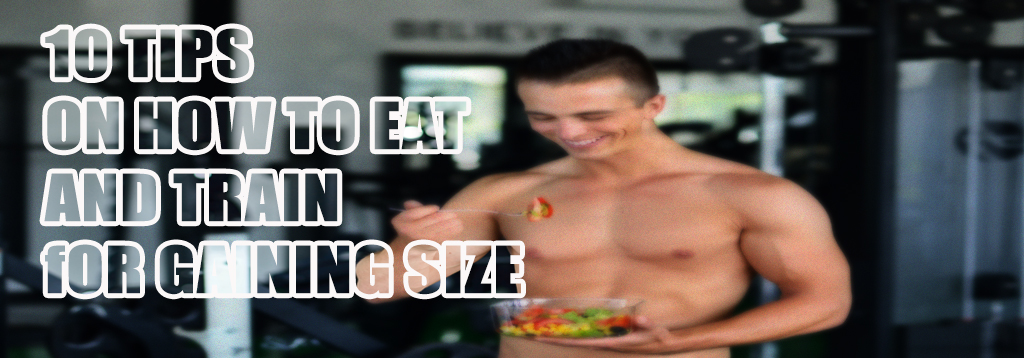
Do you want to get bigger and stronger? Gaining size combines diet and training, so getting the balance right is essential. Eating the correct type of food and following a good training program is crucial for achieving your goals. This article will provide ten tips on eating and training to gain size. In addition, we'll help you understand the basics of nutrition, which foods are best for building muscle, and how to structure an effective workout plan.
Tip 1: Consume Adequate Protein
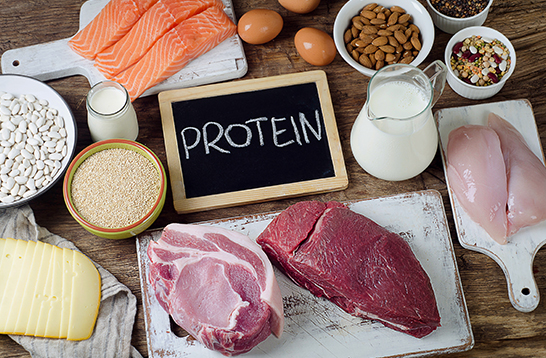
Protein is an essential factor when it comes to building muscle. An adequate protein intake is critical for those looking to put on size and gain muscle size. Consuming the right amount of high-quality protein can help optimize the body's ability to build muscle. Protein helps promote anabolism, the process by which cells synthesize proteins from smaller molecules and use them for energy or growth. Eating enough protein can help ensure that your body has all the amino acids it needs for optimal muscle growth and repair after workouts.
For those trying to build size, a good rule of thumb is to consume 0.7 - 1 gram of protein per pound of body weight daily to get the desired results from your training routine.
Tip 2: Eat Enough Calories
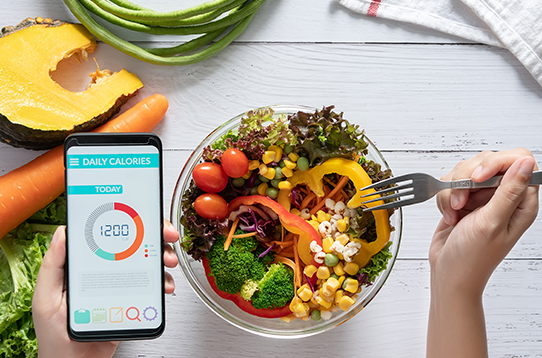
Eating enough calories is the key to gaining size and muscle. Unfortunately, most people don't pay enough attention to their calorie intake when trying to gain muscle size. However, eating enough calories should be a top priority if your goal is to increase your size and strength.
We all know that nutrition is as important as exercise in building muscle mass, but many people struggle to hit their daily calorie goals. Increasing your caloric intake may seem daunting at first, but following these simple tips can make it easier for you to meet your daily goals. We'll focus on nutrient timing and portion control so that you can maximize your gains in the gym while also eating enough calories throughout the day.
Tip 3: Eat Frequently
Are you looking for tips on how to gain size? Frequent eating is one of the essential steps in achieving your goals. By breaking up your meals into smaller portions and eating more often, you can provide your body with the nutrients it needs to fuel your workouts and build muscle.
It's best to space out these meals throughout the day. Aim for three regular meals and two or three healthy snacks between each meal. This concept will help keep your hunger under control while providing a steady energy supply to get through the day's activities. Additionally, eating regular meals helps increase protein synthesis, essential for building muscle mass.
Including high-quality protein sources, complex carbohydrates, and healthy fats in each meal can also help muscle growth and recovery.
Tip 4: Include Carbohydrates in Your Diet
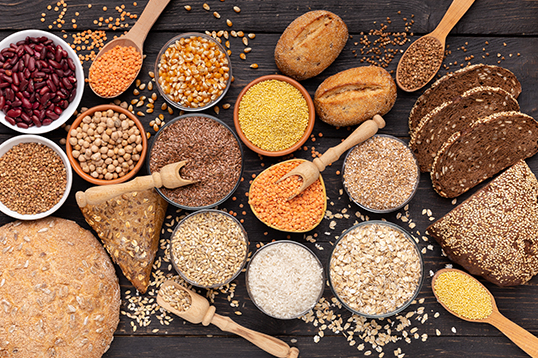
Including carbohydrates in your diet is an essential part of any health plan. In addition, eating the right kinds of carbs can assist you in reaching health and fitness goals, such as gaining size.
Carbohydrates are a fantastic energy source for the body and an important part of a balanced diet. When eaten in moderation, they provide essential nutrients like fiber, vitamins, minerals, and antioxidants that can support overall health. Additionally, the right carbs can aid muscle-building or toning efforts combined with regular exercise. Complex carbohydrates found in sources like brown rice, quinoa, sweet potatoes, oats, and legumes are excellent sources of slow-release energy that will keep you feeling full longer while providing the necessary calories for gaining size.
Tip 5: Include Healthy Fats in Your Diet
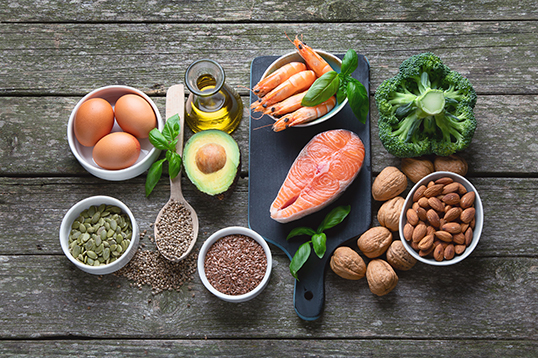
You must include healthy fats in your diet to gain size and strength. Eating nutritious and balanced meals with various foods from all the food groups, including healthy fats, can be beneficial for gaining muscle mass. Healthy fats are essential to support hormone production and cell function. They also provide energy, reduce inflammation, and help with nutrient absorption. Therefore, eating right will play a critical role in providing your body with the necessary fuel for its growth. Eating right means eating a balanced diet with plenty of fruits, vegetables, lean proteins, and healthy fats while avoiding processed foods or anything high in sugar or saturated fat.
Tip 6: Stay Hydrated

Athletes of all levels need to stay hydrated for optimal performance. Water is essential for the body to maintain its temperature, lubricate joints and organs, and eliminate waste. Proper hydration is even more critical for those looking to gain size in their athletic pursuits. A lack of adequate water intake can cause a decrease in energy and endurance while increasing the risk of muscle cramps and other physical ailments. By following these guidelines, you can ensure that you reach your fitness goals and remain healthy.
Tip 7: Focus on Progressive Overload
As athletes and bodybuilders strive for size, strength, and muscle gains, it is vital to understand the importance of progressive overload. Progressive overload refers to the gradual increase in stress or volume on your muscles that helps bring about positive adaptations such as increased muscle hypertrophy and strength. The primary goal of applying progressive overload is to create a strong enough stimulus to force the body into adaptation mode.
Tip 8: Incorporate Compound Exercises
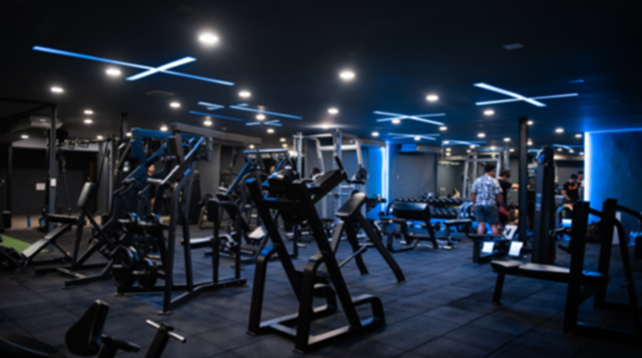
Building size and strength requires a combination of the right eating plan and a solid training program. To maximize your gains, incorporate compound exercises into your routine. Compound exercises are multi-muscle movements that use two or more joints to move weight, like squats, deadlifts, pull-ups, and bench presses.
Compound exercises target multiple muscle groups at once, which helps you build strength through functional movement patterns instead of isolated muscles used with machine exercises. By using more than one joint to lift weights, you can recruit significantly more muscle fibers allowing for saver and heavier weight lifts while increasing energy expenditure during workouts. This method means that not only are you building strength but burning calories as well!
Tip 9: Get Enough Rest and Recovery

Getting enough rest and recovery is essential to any fitness routine, but it can be vital when increasing your size. Rest days or light workouts allow the body to recover correctly from intense training sessions. So, getting adequate rest and recovery should be at the top of your priority list if you want to get bigger and stronger.
Even with these tips, however, none will matter if you don't allow yourself time off from working out. It would be great if you had a balance between challenging your body with strenuous exercises and giving it time to recover so that it can grow larger muscles.
Tip 10: Be Consistent
Consistency is critical when it comes to seeing actual results in your body. So whether you're looking to gain size or lose weight, you must maintain eating and training habits over time for the best results.
Consistency should not be confused with monotony - your meals don't have to consist of the same things day in and day out! Instead, focus on creating small changes that are sustainable long-term. For example, eating nutrient-dense foods like lean proteins and complex carbohydrates can help give you the energy needed for intense workouts so that you can keep progressing with each workout session. To further ensure success, get enough rest between sessions, so your body has time to recover and grow stronger.
Conclusion
Gaining size is a popular goal for many gym-goers and athletes, yet it can be challenging to know how best to achieve this. Eating and training correctly are two vital elements in building muscle mass. The ten tips outlined in this article provide a great starting point for anyone wanting to increase their size.
By ensuring that you eat enough calories, pay attention to your macronutrient intake, consume protein throughout the day, stay hydrated, get adequate rest, and incorporate compound movements into your workouts, you will be well on your way toward gaining size safely and effectively. Supplementing with creatine monohydrate is also beneficial as it helps improve performance during resistance training sessions. Additionally, tracking progress by taking regular body measurements gives you tangible evidence of improvement so that you can adjust your diet or workout plan if needed.
Ultimately with dedication and perseverance, your efforts will pay off.




